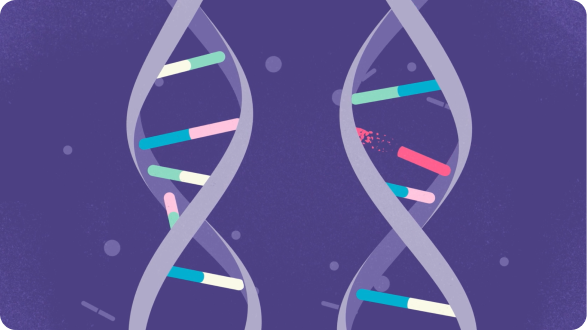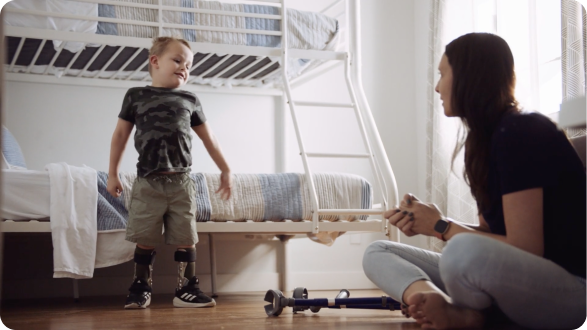

Preparing for pregnancy with carrier screening
Genetic carrier screens, simple blood tests which can be performed at any time before or during pregnancy, let partners know if they are at increased risk of passing down inherited conditions.
Should I do carrier screening before I’m pregnant?
Even if you’re not pregnant, carrier screening can tell partners whether they are at high risk for passing down a serious genetic condition.



Foresight® Carrier Screen
Only Foresight offers parents-to-be multiple panel choices that screen for up to 272 genes associated with serious conditions and a greater than 99% detection rate.2
How carrier screening helped both of Ashley’s children
Screening helped Ashley discover her son’s condition and create an early plan for the birth of her daughter.
Ashley is 26, pregnant, and experiencing a complication-free pregnancy.
Ashley is 26, pregnant, and experiencing a complication-free pregnancy.
Ashley delivers Christopher.
Ashley delivers Christopher.
At around 18 months, Christopher has not yet started walking.
At around 18 months, Christopher has not yet started walking.
Ashley and her husband learn about the Foresight Carrier Screen, get screened, find they are both carriers of spinal muscular atrophy (SMA), and that Christopher is affected.
Ashley and her husband learn about the Foresight Carrier Screen, get screened, find they are both carriers of spinal muscular atrophy (SMA), and that Christopher is affected.
Christopher gets medical interventions and extensive physical therapy, and eventually learns to walk with braces.
Christopher gets medical interventions and extensive physical therapy, and eventually learns to walk with braces.
Ashley is pregnant again with Emily. Because they know they are SMA carriers and there is a 25 percent chance Emily could be affected, they have an early intervention plan.
Ashley is pregnant again with Emily. Because they know they are SMA carriers and there is a 25 percent chance Emily could be affected, they have an early intervention plan.
Emily is delivered and is positive for SMA. The early therapeutic interventions mean that Emily hits her milestones and at age four still shows no symptoms of SMA.
Emily is delivered and is positive for SMA. The early therapeutic interventions mean that Emily hits her milestones and at age four still shows no symptoms of SMA.

REFERENCES
- Committee Opinion No. 691.American College of Obstetricians and Gynecologists. Obstet. Gynecol. 2017;129:e41–55.
- Foresight® Residual Risk Table. https://myriad-library.s3.amazonaws.com/mwh/disease-detection-fact-sheet.pdf. Accessed December 21, 2023.




